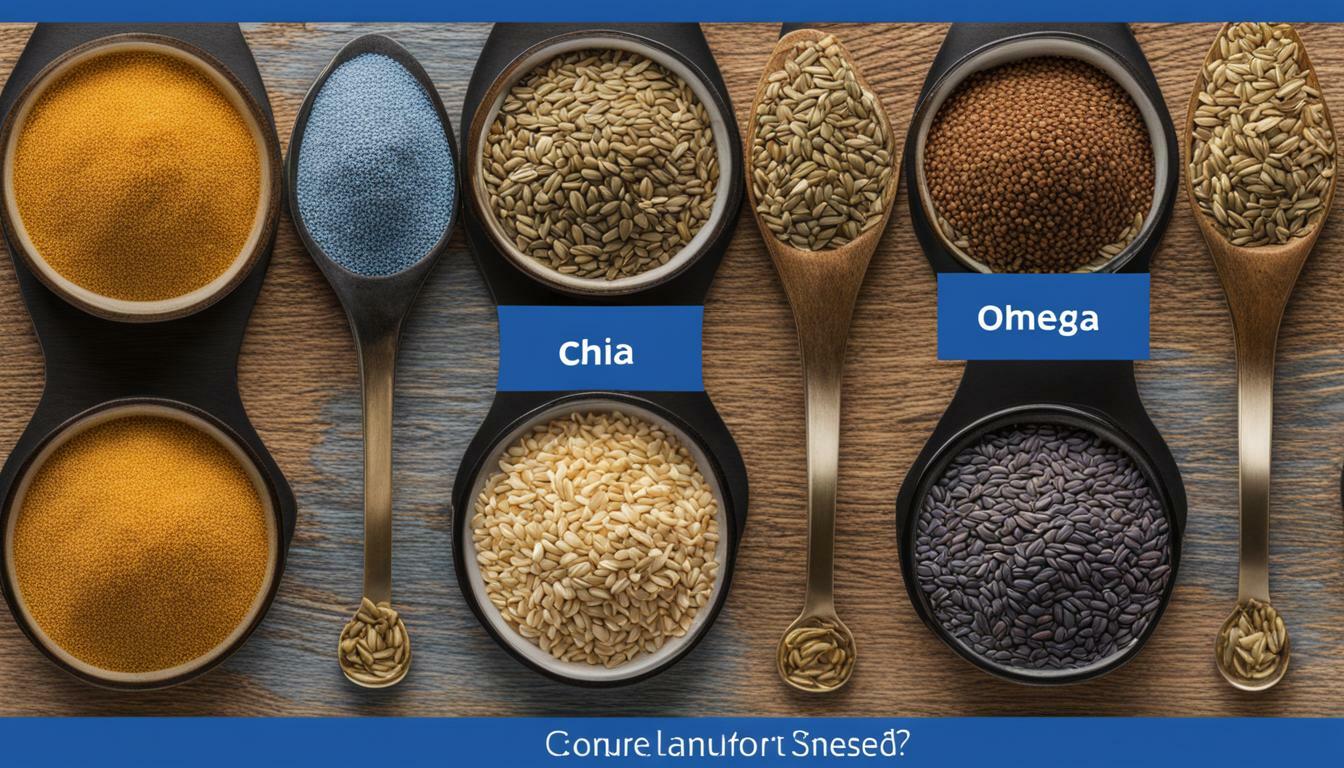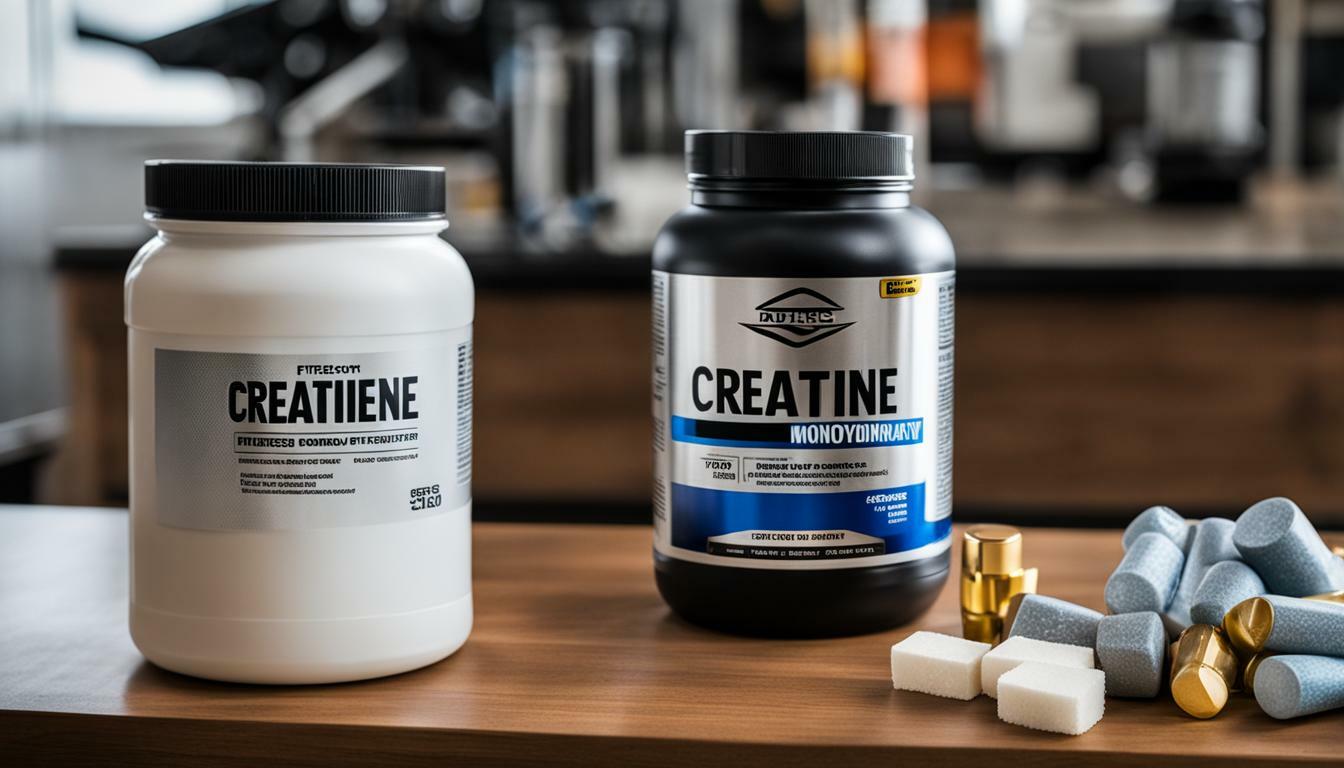Introduction: A Quick Dip into the Oil Sea
Stepping into the world of dietary supplements can often feel like diving headfirst into an ocean filled with complex jargon and conflicting advice. Amidst this sea of information, two names consistently bob to the surface – fish oil and cod liver oil.
Both are widely hailed for their health benefits, but what makes them different? Are they interchangeable or does each hold its unique place in your wellness routine?
Let’s take a plunge to explore these questions in depth. This journey is not just about clearly defining fish oil and cod liver oil.
It also aims to unravel their differences concerning source, nutrient profiles, health benefits, potential risks, and how they fit into individual health goals. So buckle up your metaphorical life vests as we set sail towards understanding these two popular dietary supplements.
The Big Picture: Fish Oil vs Cod Liver Oil
At a casual glance, fish oil and cod liver oil may seem like two peas in a pod: both derive from fish sources and contain Omega-3 fatty acids – essential nutrients lauded for their role in heart health among other benefits. However, akin to siblings with distinct personalities despite similar genetics, these oils have unique characteristics that set them apart.
Fish oil is extracted from the tissue of oily fish such as mackerel, tuna or salmon while cod liver oil – as the name suggests – is sourced specifically from the livers of codfish species. Although they share common nutritional elements like Omega-3 fatty acids (EPA & DHA), their compositions differ significantly when it comes to specific vitamin content which has implications on which supplements you might choose based on your individual nutritional needs.
The Common Ground: Omega-3 Fatty Acids
Before we dive deeper into what sets these oils apart, let’s first explore what unites them – Omega-3 fats. Both fish oil and cod liver oil are potent sources of Omega-3 fatty acids, particularly two types – Eicosapentaenoic Acid (EPA) and Docosahexaenoic Acid (DHA).
These fatty acids are known as essential fats, which means our body cannot make them on its own; hence we need to source them from our diet or supplements. EPA and DHA have been the subject of numerous scientific studies due to their wide range of potential health benefits.
They are most renowned for their heart-protective effect, but their influence extends beyond cardiovascular health to support brain function, eye health, inflammation response and more. Therefore, irrespective of which oil you choose – fish or cod liver – you will be reeling in these essential Omega-3s.
Diving Deeper: What is Fish Oil?
The Unsung Hero of the Sea
Fish oil, as its name suggests, is the fat or oil that’s extracted from fish tissues. It usually comes from oily fish such as herring, tuna, anchovies, and mackerel. But it’s not just any old fish oil we’re talking about here; it’s a potent cocktail of Omega-3 fatty acids eicosapentaenoic acid (EPA) and docosahexaenoic acid (DHA).
These beautiful little molecules are vital for our health but unfortunately are not produced by our bodies. Omega-3 fatty acids are essential nutrients that play a crucial role in brain function and growth.
They also have impressive anti-inflammatory properties which can help with everything from cardiovascular health to a myriad of skin conditions. Fish oil truly is the unsung hero from the depths of our oceans!
Catch of the Day: Sources of Fish Oil
From Ocean Dwellers to Capsule Form
The most common sources of fish oil are cold-water oily fishes, with sardines, salmon, tuna and mackerel taking center stage. These scaly swimmers are teeming with EPA and DHA-rich oils which are often consumed directly through dietary intake or harvested for creating supplements.
Fish oils can also come from the livers of certain types of fish such as cod – but that’s another story reserved for later in our aquatic journey. What’s important to note is how these sources offer slightly different compositions and concentrations of Omega-3 fatty acids because even within nature’s own formulation lab beneath the waves – variety prevails!
Nutritional Breakdown: What’s in Your Fish Oil?
The Power-Packed Potion!
One might wonder what makes fish oil so special. Well, the answer lies in its nutritional composition.
Fish oil is a rich source of Omega-3 fatty acids – mainly EPA (Eicosapentaenoic Acid) and DHA (Docosahexaenoic Acid). These are essential fats, meaning our bodies can’t produce them, and thus, they must be obtained through our diet.
A standard 1000mg fish oil capsule typically contains around 300mg of Omega-3s (180mg EPA and 120mg DHA), but this can vary between brands. Besides these star nutrients, fish oil also contains some Vitamin E to prevent spoilage.
Some supplements might also add a dash of Vitamin D for an extra health kick! Now you have the power-packed potion at your fingertips – vibrant vigor in a capsule!
Surfacing the Details: What is Cod Liver Oil?
Cod: The Unsung Hero of the Sea
In an ocean full of diverse aquatic life, it’s easy to overlook certain species. Yet, there’s one that swims gracefully amidst the multitude and deserves our special attention – The Mighty Cod. Now you may wonder, what makes this fish so praiseworthy?
Well, its liver yields an oil that has been a cornerstone in health regimens for centuries – Cod Liver Oil. Cod Liver Oil comes from exactly where you’d guess – the liver of the codfish.
But not just any cod will do; it’s typically extracted from Atlantic cod or Pacific cod varieties. This oil isn’t just another run-of-the-mill product; instead, it’s a treasure trove of vital nutrients with countless wellness benefits – which we’ll explore as we plunge deeper into this subject.
Vitamin Vault: Hidden Treasures in Cod Liver Oil
While fish oil gets all the applause for its Omega-3 fatty acids content, Cod Liver Oil doesn’t shy away from putting up a robust show either. But where it truly shines is in its rich supply of certain crucial vitamins that set it apart. Firstly, let’s talk about Vitamin A – a true superhero among vitamins known for supporting eye health and immune function as well as playing a key role in cellular growth.
Guess what? Cod Liver Oil packs an impressive amount of this essential nutrient!
Then there’s Vitamin D – commonly known as the ‘Sunshine vitamin’. Despite its importance in maintaining healthy bones and teeth and aiding our body’s immune system, many people grapple with Vitamin D deficiency – especially those who live far from the equator or spend most of their time indoors during daylight hours.
Here again, cod liver oil steps up to fill this vital nutritional gap with its rich Vitamin D content. In a nutshell, Cod Liver Oil is not just an Omega-3 heavyweight but an impressive repository of vital vitamins, making it a formidable player in the world of health supplements.
Comparing Currents: Differences Between Fish and Cod Liver Oils
The Nutrient Showdown: Omega-3, Vitamins, and More
When it comes to the oceanic oils, the nutritional profiles of fish oil and cod liver oil are distinctively different. Both are replete with Omega-3 fatty acids – EPA (eicosapentaenoic acid) and DHA (docosahexaenoic acid), which play an important role in supporting heart health, reducing inflammation, and promoting brain function.
However, their quantities vary depending on the source. Fish oil is packed with higher levels of Omega-3 fatty acids compared to cod liver oil.
This makes it a great option for those particularly interested in leveraging these heart-healthy fats. On the other hand, while cod liver oil has less Omega-3 content than fish oil, it shines brightly in terms of vitamins A and D. Cod liver oil is an excellent source of Vitamin A which aids vision and boosts immune function and Vitamin D that’s essential for bone health as well as mood regulation.
Source Matters: Environmental Considerations
The environmental impact related to sourcing these oils is another aspect worth considering when comparing fish oil and cod liver oil. Overfishing is a significant concern today that threatens marine biodiversity.
The type of fish used for extracting fish oil usually include anchovies, mackerel or salmon; some species among which are endangered due to overfishing. Cod Liver Oil extraction too plays its part in straining sea life since Cod populations have dramatically declined over the years due to excessive hunting – this raises sustainability issues around using Cod Liver Oil regularly.
As consumers who care about our oceans’ health, we might want to consider sustainably-sourced options or even plant-based alternatives like flaxseed oil or algae oil. Look for products holding certifications from Marine Stewardship Council (MSC) or Friends of the Sea to ensure that your choice doesn’t contribute negatively to the marine ecosystem.
Making Waves with Benefits and Risks
The Bounty of Health Benefits: Different Strokes for Different Folks
Like the diverse marine life beneath the surface of our vast oceans, both fish oil and cod liver oil offer a plethora of health benefits. Let’s cast a wide net here: Both oils are rich in Omega-3 fatty acids, a beneficial type of fat that your body can’t produce.
These fats are lauded for their heart-healthy benefits – think lowering blood pressure, reducing triglycerides levels, slowing plaque development in arteries and reducing chances of stroke and heart failure. However, here’s where the tide turns slightly.
Cod liver oil in its natural state also contains high amounts of Vitamin A and D. Vitamin A plays a crucial role in maintaining vision health, immune system support and cellular growth. Vitamin D on the other hand is essential for calcium absorption promoting bone health but beyond that it also supports immune function and may even play a role in mood regulation.
Charting Unchartered Waters: Navigating Potential Risks and Side Effects
Just like unpredictable ocean currents can pose challenges to even the most seasoned sailors, fish oil and cod liver oil can bring about potential risks or side effects if not consumed judiciously. One overarching concern is about safe sourcing due to pollutants like mercury which can be found in higher concentrations among larger predatory fish species.
Here’s where you need to navigate carefully: while cod liver oil offers both Omega-3 fats as well as Vitamin A & D, these very vitamins can become detrimental when ingested in excess quantities. Hypervitaminosis A—an overdose of vitamin A—can lead to dizziness, nausea, joint pain, skin irritation or more serious conditions like hair loss or even osteoporosis in extreme cases.
Overdosing on Vitamin D is less common but too much could lead to high calcium levels in the blood, causing nausea, vomiting or kidney issues. In terms of side effects, some people may experience a fishy aftertaste, bad breath or gastrointestinal discomfort like bloating or diarrhea.
Hence it’s always prudent to start with smaller dosages and observe your body’s reactions. Remember the ocean rule: It’s about appreciating its vastness while respecting its power.
Riding the Wave to Wellness: Choosing Between Fish or Cod Liver Oils
Personalized Health Goals: Which One Suits You Better?
Deciding between fish oil and cod liver oil ultimately depends on your personalized health objectives. If your focal point is purely to augment your intake of omega-3s, then fish oil, derived from a variety of sea dwellers like salmon, sardines or mackerel, may indeed be the superior choice. It tends to offer a higher concentration of these heart-friendly fats.
On the contrary, if you’re looking to harness the power of multiple nutrients in one fell swoop, then cod liver oil could be your optimal option. Apart from its omega-3 content, cod liver oil is an illustrious source of vitamin A and D. These nutrients fortify vision and immune health respectively and are especially beneficial for those who reside in regions with limited sunlight exposure.
Quality Counts: Tips for Selecting High-Quality Oils
Embarking on this health voyage requires some discernment – not all fish or cod liver oils are created equal. When it comes to quality checks, transparency is pivotal. Opt for brands that explicitly state their extraction methods and source of fishes used.
Cold-pressing tends to preserve more nutrients as compared to heat extraction methods. Ensuring that the fish source was sustainably caught maintains eco-responsibility while also indicating that potential toxins were likely minimal.
But importantly – dive deep into third-party testing results if available. This ensures that you steer clear from oils contaminated with heavy metals like mercury which could otherwise potentially capsize your wellness goals.
Conclusion: Final Thoughts on Our Aquatic Journey
Our voyage through the rich seas of fish oil and cod liver oil has, hopefully, shed light on these highly beneficial supplements. The choice between them depends primarily on your unique health goals and nutritional needs.
Remember, though they both hail from the same sea, they offer different nutrients in varying amounts. Each one can prove to be a potent ally in your journey to wellness.
FAQs – Answering Your Burning Questions about Fish and Cod Liver Oils
Which is better: fish oil or cod liver oil?
There is no universal answer as it depends on individual nutritional needs and health considerations. Fish oil is high in Omega-3 fatty acids while cod liver oil contains lower levels of Omega-3s but also includes vitamins A & D.
Are there any side effects?
Both oils are generally safe when consumed as directed by a healthcare provider but may cause some side effects like belching, nausea, or diarrhea. Always begin with a low dose and increase gradually.
Glossary – Demystifying Jargon from the Deep Blue Sea
Omega-3 Fatty Acids: Essential fats that you must get from your diet because your body can’t produce them itself. They are key for brain function as well as normal growth and development.
Vitamin A: a fat-soluble vitamin involved in immune function, vision, reproduction, and cellular communication.
Vitamin D: Also known as the “sunshine vitamin,” it’s produced in your skin in response to sunlight; crucial for bone health among other functions. We hope this glossical helps steer your understanding of these maritime marvels. Here’s to your voyage towards better health, smoother seas and brighter horizons!
 Skip to main content
Skip to main content


